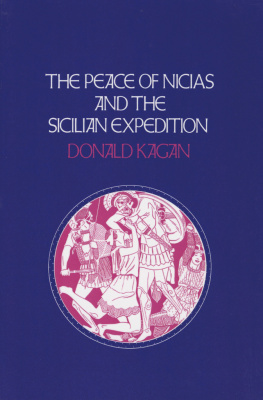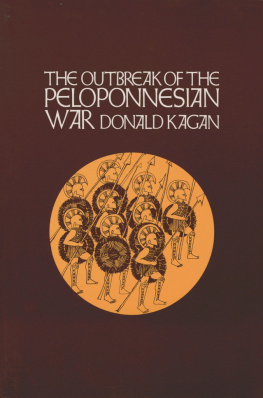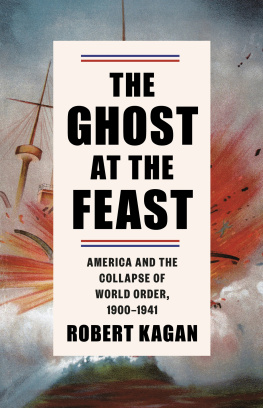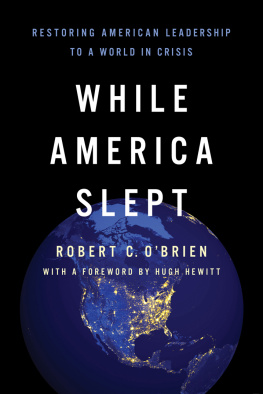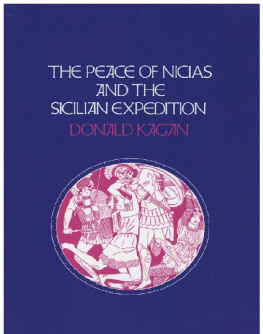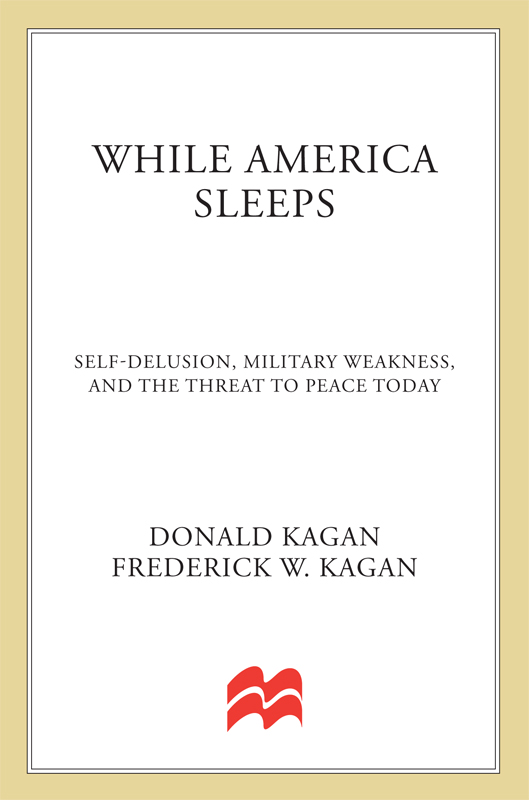Donald Kagan - While America Sleeps: Self-Delusion, Military Weakness, and the Threat to Peace Today
Here you can read online Donald Kagan - While America Sleeps: Self-Delusion, Military Weakness, and the Threat to Peace Today full text of the book (entire story) in english for free. Download pdf and epub, get meaning, cover and reviews about this ebook. year: 2014, publisher: St. Martins Publishing Group, genre: Politics. Description of the work, (preface) as well as reviews are available. Best literature library LitArk.com created for fans of good reading and offers a wide selection of genres:
Romance novel
Science fiction
Adventure
Detective
Science
History
Home and family
Prose
Art
Politics
Computer
Non-fiction
Religion
Business
Children
Humor
Choose a favorite category and find really read worthwhile books. Enjoy immersion in the world of imagination, feel the emotions of the characters or learn something new for yourself, make an fascinating discovery.

- Book:While America Sleeps: Self-Delusion, Military Weakness, and the Threat to Peace Today
- Author:
- Publisher:St. Martins Publishing Group
- Genre:
- Year:2014
- Rating:3 / 5
- Favourites:Add to favourites
- Your mark:
While America Sleeps: Self-Delusion, Military Weakness, and the Threat to Peace Today: summary, description and annotation
We offer to read an annotation, description, summary or preface (depends on what the author of the book "While America Sleeps: Self-Delusion, Military Weakness, and the Threat to Peace Today" wrote himself). If you haven't found the necessary information about the book — write in the comments, we will try to find it.
In While England Slept Winston Churchill revealed in 1938 how the inadequacy of Britains military forces to cope with worldwide responsibilities in a peaceful but tense era crippled its ability to deter or even adequately prepare for World War II.
In While America Sleeps, historians Donald and Frederick Kagan retrace Britains international and defense policies during the years after World War I leading up to World War II, showing in persuasive detail how self-delusion and an unwillingness to face the inescapable responsibilities on which their security and the peace of the world depended cost the British dearly. The Kagans then turn their attention to America and argue that our nation finds itself in a position similar to that of Britain in the 1920s. For all its emergency interventions the U.S. has not yet accepted its unique responsibility to take the lead in preserving the peace. Years of military cutbacks-the peace dividend following the buildup and triumph over Communism of the Reagan years-have weakened our armed forces and left us with too few armed forces to cover too many possible threats. This has caused us to bank everything on high tech smart weapons - some of which have not yet been invented and others that we are not acquiring or deploying - as opposed to the long-term commitment of money, fighting men and women, and planning that the deterrence of a major war would require. This failure to shape a policy and to commit the resources needed to maintain peace has cost valuable time in shaping a peaceful world and has placed Americas long-term security in danger.
The policies of the Bush and Clinton administrations have left us in a position where we cannot avoid war and keep the peace in areas vital to our security. Neither have the post-Cold War policies sent clear signals to would-be aggressors that the U.S. can and will resist them. Tensions in the Middle East, instability in eastern Europe and the former Soviet Union, the nuclear confrontation between India and Pakistan, the development of nuclear weapons and missiles by North Korea, and the menacing threats and actions of China, with its immense population, resentful sense of grievance and years of military buildup, all hint that the current peaceful era will not last forever. Can we make it last as long as possible? Are we prepared to face its collapse? While America Sleeps is a sobering, fascinating work of history that poses a thoughtful challenge to policy-makers and will interest military buffs as well as readers interested in history and international relations.
Donald Kagan: author's other books
Who wrote While America Sleeps: Self-Delusion, Military Weakness, and the Threat to Peace Today? Find out the surname, the name of the author of the book and a list of all author's works by series.

